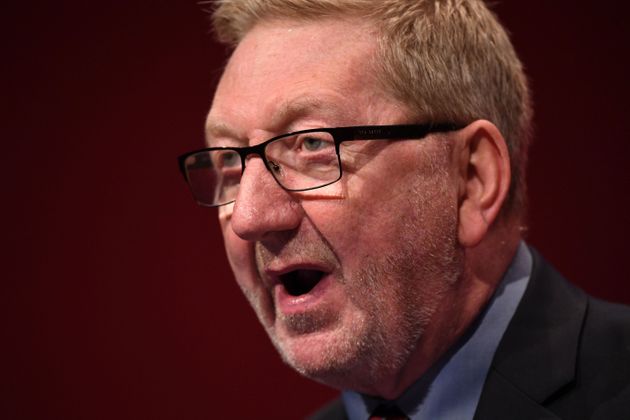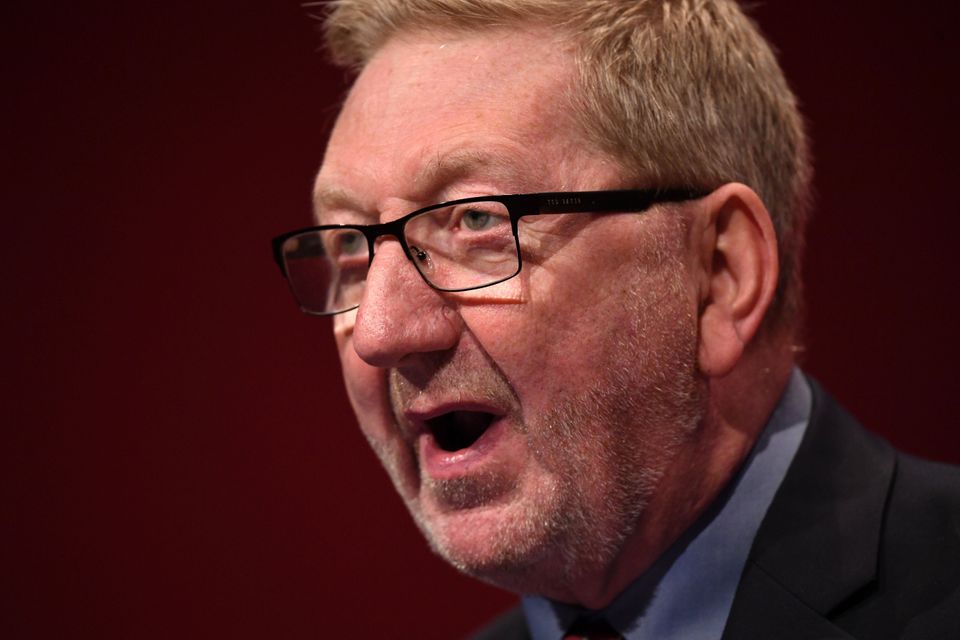You’re reading The Waugh Zone, our daily politics briefing. Sign up now to get it by email in the evening.
“Two down, one to go.” That’s how a Labour MP reacted this week to the news that moderate Gary Smith was just elected to lead the GMB union. It was a reference to the fact that this year’s general secretary elections for the UK’s ‘big three’ trade unions – Unison, Unite and GMB – have seen two victories for candidates seen as friendly to Keir Starmer.
While Smith won the GMB contest on Thursday, earlier this year Christina McAnea saw off three more left-wing rivals in the battle to lead Unison. But although Unison is now the largest union in the country, it is the fight to succeed Len McCluskey that is seen as the race with the biggest prize. A clean sweep of ‘moderates’ would deliver for Starmer more union boss support than any Labour leader since the 1950s.
Of course, the contests are often more than a straight battle between ‘left’ and ‘right’. As a former Communist, McAnea is hardly a Blairite. She was however seen as the most pragmatic of the contenders for the Unison top job. Crucially, she also became the first female leader of a ‘big’ union, which was fitting given just how many women NHS, council and social care staff make up Unison’s membership.
Women make up more than half of the GMB’s membership and after an independent report found evidence of “institutional sexism” among its ranks, some had expected Rehana Azam to clinch the general secretary job. On his victory, Smith acknowledged the sexism findings and vowed to implement reforms. Still, some in the union claim the “women’s vote” was split after another candidate, Giovanna Holt, decided to stand.
In fact, “splitting the vote” is often a feature, whether deliberate or unintentional, of general secretary elections. Why? Because unlike virtually every other internal election (say Tory and Labour leader elections), they are run under first past the post rules. When McAnea won the Unison post, her vote was less than the combined total of the three leftwingers who stood against her.
And it’s that first past the post factor which is now very much in play in “the big one”, Unite. Centrist Gerard Coyne is up against three leftwing rivals (Steve Turner, Howard Beckett and Sharon Graham) and as a result could end up winning with less than half of the vote. As Turner conceded to me recently: “If we had the same turnout as last time, there ain’t enough votes to go round on a straight three-way [Left] split to defeat” Coyne.
Turnouts tend to be low in union elections (the GMB’s this week was just 10.6%, Unite’s last time was about 12%). That’s in part because the Conservative government has refused to allow online balloting (something that’s allowed in political party elections), partly because of a lack of public profile and partly apathy among union members.
But given the low turnouts, three Left candidates are often fishing in a small pool for the same votes. After Turner narrowly won last year the crucial nomination of the ‘United Left’ grouping in the union, Beckett opted to still stand. National organiser Graham was always going to stand in her own right too, which means the Left will indeed be split.
I understand that all four candidates now have enough branch nominations to formally stand as candidates. With the final deadline for nominations due on Monday, Coyne and Turner are holding back details for now, possibly to gain even more backing over this weekend. Graham was the first to reach the threshold, and Beckett “smashed” through it this week. There are no signs that any will step aside to unite around a single Left candidate but bragging rights over who has most nominations will be valuable.
Why does any of this matter beyond internal union affairs? Well, Unite has been Labour’s biggest donor in recent years and still retains a significant presence on the party’s ruling National Executive Committee (NEC). Some even think the stakes are so high that this Unite election may have more long-term impact on the party than the May local elections, or even the forthcoming Batley and Spen by-election.
Beckett, who has been suspended from Labour over a tweet about Priti Patel, is almost certain to be reinstated after a reprimand, insiders believe. His supporters think he has the momentum in the race. And if Beckett succeeds McCluskey “he’ll make Len look like a pussycat”, one union source told me. He has already threatened to pull funding for Labour, tweeting his warning just minutes after the party’s Unite staff branch voted to nominate Coyne. Turner, a collegiate trade unionist by nature, has said he would happily work with Starmer.
Beckett’s Twitter controversy may well have helped him raise his profile in the Unite election. Similarly, Newsnight’s allegations of his role in moves to unseat Labour MPs may even boost his credentials among some left-minded union members. However, Coyne’s camp believe he’s the only candidate committed to introducing transparency in how Unite spends their money, be that on the £98m hotel complex in Birmingham or on paying more than £2m in libel costs to ex-MP Anna Turley.
Coyne may also be boosted by the little-noticed fact that in the Labour leadership election, Starmer won a majority of Unite members’ votes. As Steve Turner, who backed Rebecca Long-Bailey, put it to me recently: “We didn’t win the argument inside our own union…We won it amongst the politicos and that group that loves to talk to themselves…But in the real world out there, where 99.9% of our members reside, they’re not.”
And that’s really perhaps why the Unite contest matters. Many of its members, who like both Brexit and state spending, actually voted for Boris Johnson in 2019. If the new general secretary can somehow help Starmer reconnect with those voters, while somehow helping Labour to look more united (the clue is in the union’s name), many of his MPs would be grateful. For the party’s Left, unifying around a single candidate may be just as valuable a lesson too.








